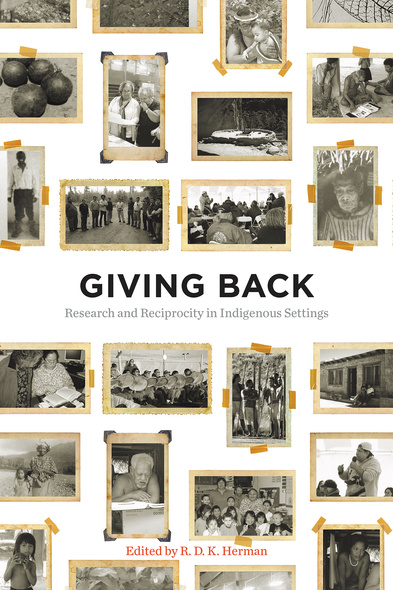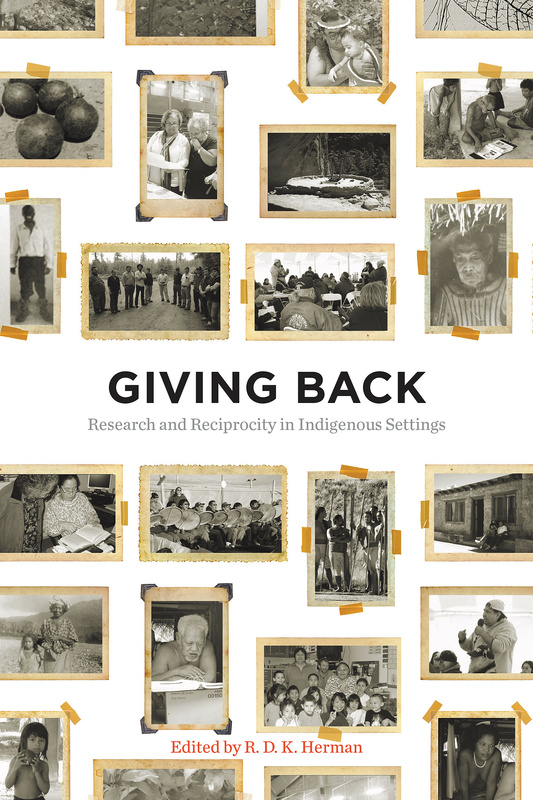
Giving Back
Research and Reciprocity in Indigenous Settings
How can scholars best give back to the communities in which they conduct their research? This critical question arises from a long history of colonial scholarship that exploited study subjects by taking knowledge without giving anything in return. It is a problem faced by all field researchers, even those working in their own communities.
Over the past several decades—and especially since the evolution of feminist methodologies, participatory research, and the postcolonial turn in the 1990s—there have been calls for research to be less exploitative, but also for researchers and for the research itself to give something back. Giving Back: Research and Reciprocity in Indigenous Settings addresses the need for reciprocity in the research process, especially (though not exclusively) in regard to indigenous communities.
The twelve case studies in this volume demonstrate that giving back can happen through the research itself—through the careful framing of questions, co-production of knowledge, and dissemination of results—but also through the day-to-day actions and attitudes of researchers that inevitably occur in the field. It can range from everyday give-and-take to the sharing of research materials to larger and longer-term engagements.
As practitioners of community-based research gain greater awareness of these issues, scholars and institutions need guidance and strategies for ensuring reciprocity in the research process. This volume presents a variety of situations from a wide range of research contexts, discusses what has and hasn’t worked, and explores what issues remain.
CONTRIBUTORS:
Jennifer Carter
Julia Christensen
Claire Colyer
David Crew
Erica A. D’Elia
Maria Fadiman
R.D.K. Herman
Richard Howitt
Stephanie Hull
Gwyneira Isaac
Chris Jacobson
Meredith Luze
Catrina A. MacKenzie
Lea S. McChesney
Kendra McSweeney
Janice Monk
Roxanne T. Ornelas
Tristan Pearce
Matthew Reeves
Chie Sakakibara
Wendy S. Shaw
Sarah Turner
John R. Welch




